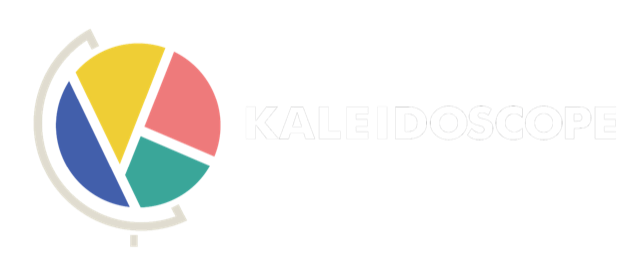A college prep curriculum that makes sense of contemporary America through the lenses of the six major social sciences.
Course overview:
Each unit introduces a social science as a lens for understanding a social issue, e.g., economics for inequality and mobility
Each unit has an anchor text, written by a Ph.D. in the field for a popular audience
Each unit has an assessment task that builds valuable college and disciplinary skills while asking students to apply what they’ve learned
Together, the units enable students to develop an understanding of contemporary America that goes beyond the headlines
benefits for students:
Learn valuable skills for college & life--from how to efficiently tackle a nonfiction text or journal article to how to craft an argument using quantitative evidence
Gain insight into possible college majors and career possibilities to be more prepared for college
Grapple with important social issues through college-level seminar discussion
Explore interests through meaningful assessment tasks that allow students to apply what they’ve learned to a topic of interest to them
The American Dream, photo by Will Ahn, Kaleidoscope ‘18
How Schools Use 3sp:
Three ways schools have used curriculum:
A social studies elective for juniors and seniors
A junior/senior English elective. Each unit builds a rich text set around an anchor book, written by a scholar in the field.
Individual units as J-term or end-of-year projects
Ultimately, how you use the class is up to you! We offer modules individually as well as the class as a whole.
unit summaries
There are six units. They can be taught together as a yearlong class or as individual modules. Each unit is 12-15 lessons that include about 30 minutes of homework per day.
Economics: Inequality & Mobility
Theme: Economic inequality & mobility
Core text: Good Economics for Hard Times, Abhibit Banerjee & Esther Duflo, winners of the Nobel Prize in economics
Example supplementary resource: Hans Rosling video on the evolution of human outcomes
Example disciplinary skill: evaluate policies to address poverty like universal basic income & negative income taxes
Assessment task: Analyze mobility or inequality in a particular time & place of the student’s choosing
sociology
Theme: Systemic racism
Core text: Thick, Tressie McMillan Cottom; Cottom is a sociologist and MacArthur Fellow
Example additional resource: New York Times Op-Docs like this one about Latinos
Example disciplinary skill: How to approach a scholarly journal article
Assessment task: Apply sociological analysis in an essay on a topic of students’ choice—past projects have ranged from the cultural appropriation of Chinese food to colorism at the Oscars
Psychology
Theme: Social connection & social isolation
Core text: Social by neuroscientist Matthew Lieberman
Example additional resource: Jonathan Haidt’s piece for The Atlantic, “End the Phone-Based Childhood Now”
Example disciplinary skill: Evaluate the research experiments used to make arguments in Social
Assessment task: Form and communicate a research-backed recommendation to increase connection at your school, as well as a research proposal for evaluating its success
Anthropology
Theme: Culture & belonging
Core text: The Secret of our Success, Jo Henrich; Henrich, an anthropologist, is the Chair of Human Evolutionary Biology at Harvard
Example additional resources: Ethnographies on migrant culture & on investment banking culture
Example disciplinary skill: Taking & analyzing field notes
Assessment task: Write an ethnography—past topics have included ethnographies of classes, sports teams, families
History
Theme: Immigration & xenophobia
Core text: America For Americans, Erika Lee; Lee is a historian at Harvard and winner of the America Book Award
Example additional resource: Historical op-eds on immigration including this 1981 opinion from Colorado governor Richard Lamm
Example disciplinary skill: Develop critical thinking & media literacy by examining how Erika Lee constructs her arguments
Assessment task: Write an op-ed on immigration
Political Science
Theme: Collective Action & Climate Change
Core Text: What is Environmental Politics?, Elizabeth DeSombre
Example additional resource: Duke professor Michael Munger’s talk on the reasons to study political science
Example disciplinary skill: Stakeholder analysis, used as part of negotiation exercise
Assessment task: Create a plan for starting or improving an environmental initiative
About the reading
Each unit uses a book written for a popular audience by an author with a Ph.D. in the field. These are the sort of books frequently assigned in college and read by adults interested in the topic. We believe students should have the opportunity to prepare for college by learning to read texts like these in high school. We also believe that engaging with these sort of text is an invaluable habit for our future citizenry.
We supplement each core text with additional sources—podcasts, magazine articles, op-eds, etc.—to put the text in conversation with popular media. Students see how what they are learning shows up in the fabric of our current national conversations.
a transformational Student Experience
Outcomes go far beyond grades, as compared to other high school classes:
94% of students agree the course felt more engaging
100% of students agree it felt more relevant
100% agree helped hone interests more
100% agree developed more college-level skills
94% agree treated me more like an adult
Materials included in the curriculum
Assessment task for each unit
Sample assessment task responses
Assessment task rubrics
Standards maps
Student surveys
Unit plans
Daily lesson plans
Teacher reading guides
Conceptual guides (e.g., Introduction to Economics, Research Methods in Psychology)
About the curriculum Development team
Social Sciences for Social Problems was developed by a team of subject matter experts led by Kaleidoscope founder Sarah Dillard & award-winning teacher & historian, Katharina Matro.
Lead developer: Katharina Matro
Dr. Katharina Matro is an award-winning teacher and historian. Katharina teaches history and sociology at Walter Johnson High School in Bethesda, MD. She received her Ph.D. in history from Stanford, an M.A. in international economics from Johns Hopkins, and a B.A., summa cum laude, from Amherst College. Katharina is a council member of the American Historical Association’s Teaching Division.
















